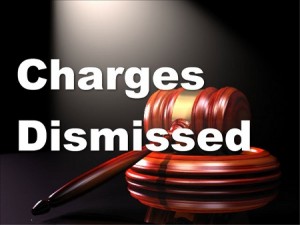Warning: Trying to access array offset on value of type bool in /home/daneciolino/public_html/lalegalethics/wp-content/plugins/footnotation/footnotation.php on line 193
Warning: Trying to access array offset on value of type bool in /home/daneciolino/public_html/lalegalethics/wp-content/plugins/footnotation/footnotation.php on line 193
 On September 26, 2014, the Louisiana Supreme Court ordered the dismissal of disciplinary charges against New Orleans lawyer Kearney Loughlin. See In re Kearney Soniat Du Fossat Loughlin, No. 14-B-0923. The Office of Disciplinary Counsel charged Loughlin with violating Louisiana Rule 7.2(c)(1)(B), Louisiana Rule 7.2(c)(5), and former Louisiana Rule 7.4 (as it existed prior to 2009). Rule 7.2(c)(1)(B) prohibits a lawyer from making statements about the lawyer’s services that are false, misleading, or deceptive. Rule 7.2(c)(5) prohibits a lawyer from implying that he is a specialist in a field unless the lawyer is certified by a specialization organization.
On September 26, 2014, the Louisiana Supreme Court ordered the dismissal of disciplinary charges against New Orleans lawyer Kearney Loughlin. See In re Kearney Soniat Du Fossat Loughlin, No. 14-B-0923. The Office of Disciplinary Counsel charged Loughlin with violating Louisiana Rule 7.2(c)(1)(B), Louisiana Rule 7.2(c)(5), and former Louisiana Rule 7.4 (as it existed prior to 2009). Rule 7.2(c)(1)(B) prohibits a lawyer from making statements about the lawyer’s services that are false, misleading, or deceptive. Rule 7.2(c)(5) prohibits a lawyer from implying that he is a specialist in a field unless the lawyer is certified by a specialization organization.
Loughlin claimed on his former website that he specialized in maritime personal injury cases. Loughlin contended that the website did not claim particular legal expertise or specialization. Instead, he claimed that the site used the word “specializing” to mean that his practice focused on maritime personal injury and death claims. Loughlin also claimed that the Louisiana Rules were overbroad, vague, and violated his First Amendment right to free speech.
The matter proceeded to a formal hearing. The hearing committee found that Loughlin violated Louisiana Rule 7.4 because his website implied that he was a specialist in maritime personal injury cases and such a specialization had not been recognized by the Louisiana Board of Legal Specialization. The committee further found that Loughlin’s violations caused no actual injury. The disciplinary board adopted the committee’s findings and ordered that Loughlin be publicly reprimanded.
Loughlin appealed the board’s reprimand to the Louisiana Supreme Court. The Court found that Loughlin did not act with a culpable state of mind, and that his actions caused no harm to the public. As a result, the Court concluded that Loughlin’s actions did not rise to the level of sanctionable conduct, and dismissed all charges against him.
The court’s dismissal of these charges was clearly correct. First, Laughlin’s violation was at worst de minimis and not worthy of sanction.1 More importantly, the purpose of Louisiana Rule 7.2(c)(5) is to prohibit false claims of official certification.2 Most lawyers who state that they “specialize” in certain a practice area don’t intend to suggest that the Louisiana Board of Legal Specialization, or any other organization, has formally certified them as an “expert” or a “specialist” in a field of practice. On the contrary, most simply use the term “specialize” in its nontechnical sense: “to concentrate one’s efforts in a special activity, field, or practice.” See Merriam-Webster Dictionary (def. “specialized”). Such innocuous statements should be permitted by the Louisiana Rules, which provide that a lawyer may “communicate the fact that the lawyer does or does not practice in particular fields of law.”See Louisiana Rules of Professional Conduct Rule 7.2(c)(5); see also ABA Model Rule of Professional Conduct 7.4(a). Nevertheless, given the unusually aggressive stance ODC took against Laughlin on this minor issue, a Louisiana lawyer should make sure that the words “certified,” “expert” and “specialist” appear no where on the lawyer’s website or other promotional materials—despite that Laughlin will not be sanctioned for similar conduct.
- The Louisiana Supreme Court has held that conduct constituting a relatively minor violation of the Louisiana Rules of Professional Conduct will not result in disciplinary sanctions if no harm results. The court reconfirmed this principle in In re Dalton, 09-B-1288 (La. Oct. 2, 2009). In Dalton, Lake Charles lawyer Richard Dalton reduced his fees from $6,900 to $4,000, allegedly without first obtaining his client’s informed consent as required by Louisiana Rule 1.4. The court concluded “that any harm resulting from these rule violations was de minimis in nature, as the reduction of fees was actually to the client’s benefit.” As a result, the court held: “Not every violation of the Rules of Professional Conduct warrants the imposition of formal discipline. See, e.g., In re: Cabibi, 05-1217 (La. 2/22/06), 922 So. 2d 490, and In re: Hartley, 03-2828 (La. 4/2/04), 869 So. 2d 799. Given the limited resources of the disciplinary system, the ODC should act wisely to ensure that the charges it chooses to file will satisfy the overarching goals of the disciplinary process, namely, maintaining high standards of conduct, protecting the public, preserving the integrity of the profession, and deterring future misconduct. Louisiana State Bar Ass’n v. Reis, 513 So. 2d 1173 (La. 1987).” ↵
- The corresponding ABA Model Rule is clearer in this regard. Model Rule 7.4(c) expressly permits a lawyer to state that the lawyer “specializes” in an area of practice–provided that the lawyer does not “state or imply that the lawyer is certified as a specialist in a particular field of law” without formal certification, and provided that the statement is not false or misleading. See ABA Model Rule of Professional Conduct 7.4(c) (emphasis added); see id. cmt. 1 (“A lawyer is generally permitted to state that the lawyer is a ‘specialist,’ practices a ‘specialty,’ or ‘specializes in’ particular fields,” provided that the statement is not false or misleading). ↵
